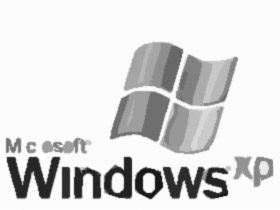
by medicaltechont | Sep 21, 2013 | Software, Technology
But it’s not only in politics and business that the wisdom of open can be challenged. Most of us would like if Apple allowed us users a bit more control over our smartphones, sure. But Google’s commitment to Android’s openness means that smartphone manufacturers are free to slap their own user interfaces on top of the platform, often packed with widgets and other pre-installed apps. For savvy users, stripping away the junk isn’t much of a problem, but many presumably just live with it. Here you could argue that the initial openness leads to a worse experience for the user at the end of the line.
Read more

by medicaltechont | Aug 12, 2013 | Hardware, Software, Technology
Microsoft’s XP operating system is still used on more than a third of the installations out there, according to figures from Net Applications. Is it really still that popular?
XP was released in August of 2001, more than a decade ago. It got a new lease on life when its successor, Vista, was declared — at least initially — a disaster back in 2006.
On Friday, figures from Net Applications (see graph at bottom) showed XP with a robust 37.74 percent of all Windows and Mac OS installations worldwide, down only slightly from 38.31 percent in April.
Read more
by medicaltechont | Sep 22, 2012 | Canada, e-Health, emr, Software, Technology
TORONTO – The Ontario government has spent nine years and billions of dollars trying to make its troubled eHealth program work.
And despite repeated assurances from the government, that progress is being made, many doctors still struggle to get timely access to basic medical records and patients continue to face needless risks and treatment delays the program has failed to deliver what the public was promised – efficient access to electronic health records.
One Burlington family doctor became so frustrated, he hired college students to see if they could help him fix the electronic mess the government left in his office.
They did.
He was able to easily and inexpensively turn unfriendly electronic patient information programs into a helpful tool he can actually use when sitting in front of a patient.
But Dr. John Holmes said that while one eHealth Ontario official showed up at his office to see what he’d done, the organization clearly wasn’t interested in learning from his experience.
As a frontline health care provider and as a taxpayer, that indifference doesn’t sit well with Holmes.
Read more
by medicaltechont | Feb 16, 2010 | Ontario, Software
The federal government’s failure to release $500 million in promised funding has slowed the next phase of the multibillion-dollar national effort to implement electronic health records (EHRs), says Canada Health Infoway President Richard Alvarez.
The year-long freeze on federal funding has compromised plans to rollout initiatives designed to improve physician uptake of electronic records, Alvarez says. This will do nothing to improve Canada’s status as an international EHR laggard, Alvarez says.
“The next very serious phase is basically in community physicians’ offices,” says Alvarez, head of the federal agency created in 2001 to promote provincial and territorial EHR programs. “The vast majority of the [new] money was earmarked for that. That’s an absolutely crucial step in this journey. We’ve been slowed down. If we don’t have money to invest in that area we obviously can’t do that until such time as the money is reinstated.”
The $500 million was promised in the 2009 federal budget, raising the government’s overall electronic health records investment to $2.1 billion. Since 2001, Ottawa has now paid $1.6-billion for an array of programs in which federal funds have been matched by provincial and territorial monies to build nationally compatible systems and platforms. Alvarez estimates that about $3 billion has been invested to date by various levels of government in the development of EHRs in Canada.
Read More



